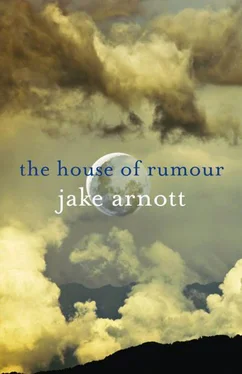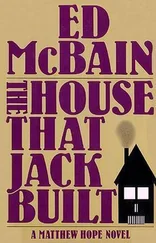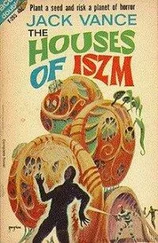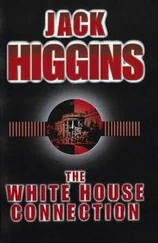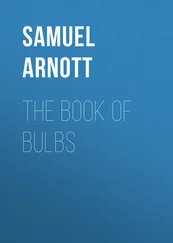The world held its breath.
Millions perished in a conflict of unimaginable cruelty while at the same time the Third Reich began to fully implement its genocidal Final Solution. Yet Barbarossa failed. Overstretched and frozen into paralysis by an early winter, the Nazis were pushed back from Moscow. Despite enormous losses in territory, people and resources, the Soviets fought on and survived. This was the turning point of the war; from then on the Nazis began losing. And finding itself at a logistical disadvantage with depleted resources, the Reich began investing in research and development to create Wunderwaffen : super-weapons that they imagined would give them a strategic advantage. Science fiction prototypes and the rocket technology that would become an essential component of the American space programme.
I’m tempted to read the Hess affair as a jonbar moment — that crude device of SF’s Golden Age. In a time of uncertainty when we clumsily applied quantum ideas to pulp narratives with multiple worlds and parallel universes, 1941 seems the point when fiction was at its most speculative. It was the heyday of the Mañana Literary Society and the year that Borges’ ‘The Garden of Forking Paths’ was first published. And the flight to Scotland was like the double-slit experiment, where any event can have more than one outcome. If Hess had made peace in the West, could the Nazis have won in the East? In a labyrinth of dangerous possibilities, any number of brutal alternate histories or guilty fantasies of power proliferate. Hess himself was drawn by his paranormal sense of destiny — to make his leap in space to try to disrupt the order of time. And, in turn, I start to retrace my own steps. All memoir can become an exercise in counter-faction in the end. What might or might not have been. I might have been spared combat duty and never have flown those thirty missions, nor seen those strange lights in the sky over the Rhineland. I would not have had to come home from a European war to find Mary-Lou still in love with Jack Parsons and, out of some misplaced shell-shocked bravado, pretend that I didn’t care any more. I could have acted even then but I left it too late. And the scarce time we had together was spent at the wrong end of our lives. Mary-Lou died five years ago, but it hardly seems like anything at all. Everything speeds up so much when you get this old.
A half-life of memories in decay: my twilight affair with Mary-Lou short-term and fading fast; the image of her and Jack burning brighter than ever. Mary-Lou once showed me a poem of his:
I remember
When I was a star
In the night
A moving, burning ember
Amid the bright
Clouds of star fire
Going deathward
To the womb.
This now seems such a prescient image of the Voyager probe, that tiny starship forever linked to him, sent out on a grand tour of the solar system, taking advantage of an auspicious alignment of the planets that allowed for gravitational slingshots to extend its trajectory so that it could visit Jupiter, Saturn, Uranus and Neptune before being catapulted into deep space. A flight augured by an astrological conjunction, as if guided by that synthesis of science and the occult that Parsons tried to conjure. It even calls to mind ‘Zodiac Empire’, Mary-Lou’s space-opera that I tried to finish.
But the universe has a nasty sense of humour. When you try to force these sorts of connections on it, it’s liable to respond with irony rather than revelation.
Trace another particle, tease one more individual out of the cloud mass of history. Take Kurt Waldheim, a cavalry lieutenant in the Wehrmacht in 1941. His true path is uncertain: wounded during the Russian counter-attack to Barbarossa, he later lied about his war record, claiming that he was discharged from further service at this point. We know that he became an intelligence officer in Bosnia and Greece, that circumstantial evidence links him with atrocities committed there, but we may never discover the truth of his actual involvement in them. This has been lost in the art of forgetting. There have even been allegations that his subsequent diplomatic career was part of a Cold War game, that both the CIA and the KGB knew of his dishonourable past and blackmailed him for their own purposes. Echoes in the House of Rumour. What is certain is his soaring trajectory in international politics. In 1965 he represented Austria at the UN; in 1968 he was president of the First Conference on the Exploration and Peaceful Uses of Outer Space. He achieved the highest office as de facto spokesman and leader of the United Nations when he was elected Secretary-General in 1971. In 1977, in his second term as the official spokesman of the world, he was invited by the Jet Propulsion Laboratory to make a recording.
Yes, it is Waldheim’s breath etched into the golden disc aboard Voyager 1, sending greetings of peace and friendship to the occupants of outer space. W.G. Sebald, in his book The Rings of Saturn , has pointed out this rather bleak joke: that our diplomatic representative to the galaxy is a suspected war criminal. Perhaps we deserve nothing better. But I feel sorry for Nemo; he put so much faith in the Posadist vision that interstellar craft would necessarily be piloted by progressive socialists.
We looked to the stars for utopian ideas; like Campanella and his cosmic mutazione, we drew down dreams from above of other worlds and other possibilities. I still believe in the essential idealism of science fiction. But it’s best when it doesn’t struggle too hard for meaning. Fantasy can be the most honest of literary genres when it doesn’t pretend to realism. Absurd speculation is a simple necessity and warnings from the future can be useful, but we should be wary of prophecy and cautious of that yearning desire for connectedness. Fleming saw the House of Rumour as the image of an intelligence service; we can know it now as an ancient vision of the internet. The haunt of credulity, rash error, empty joy and unreasoning fear. The world whispers stories to itself. This is what conspire means: to breathe with.
‘Let us inhale!’ declared Tommaso Campanella as he walked the French countryside in his last years. Despite decades of suffering and confinement, he was finally able to enjoy his liberty. An admirer from Dauphiné, Nicolas Chorier, records a joyful and light-hearted man strolling in happy recreation, calling out: ‘Let us inhale life from the life of the world!’ He thought of air as the spirit of the earth, the soul of nature.
Campanella was finally released from imprisonment in 1629. He never gave up his ideal of the City of the Sun, that great utopia and memory system conceived amid terrible agony and privation. At Louis XIII’s court he dedicated new writings to Cardinal Richelieu and implored him to build Héliaca, a French form of Heliopolis. His final work was to chart the horoscope and compose a sonnet commemorating the birth of the future Louis XIV: the Sun King.
Campanella saw the world as a book from which we learn; the world as a great animal, within which we are mere parasites. That the world is a living thing was, says Campanella, ‘first taught by Hermes Trismegistos’. Philip K. Dick claimed that this same Trismegistos tells us our universe is a hologram, the world a book in which we are read. Our dimensions are projected from a distant event horizon somewhere at the far reaches of the universe.
Weltanschauung . A world-view. In 1990, Voyager 1 took a photograph of the earth from a record distance. Taking up less than a pixel, our planet showed up as a pale-blue dot in a grainy band of light. Up close, our world is overwhelming; at a distance, utterly negligible. A mote of dust in a sunbeam, a lonely speck in the enveloping darkness.
Читать дальше
